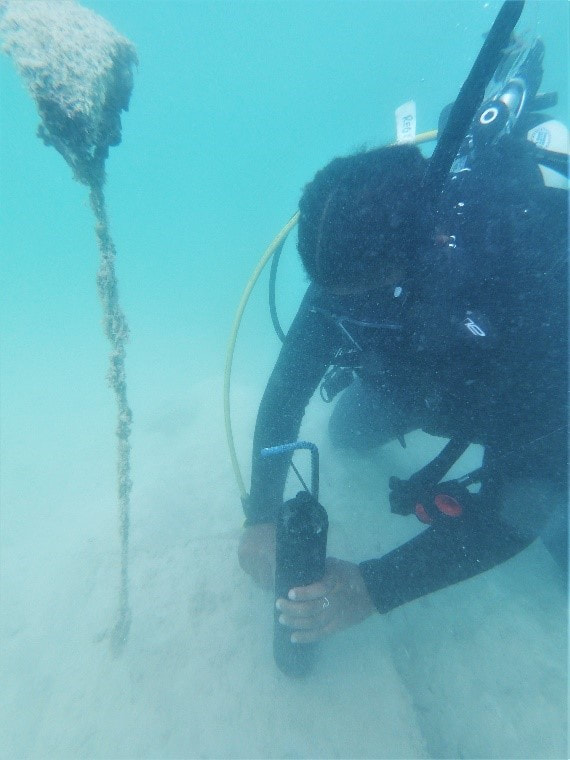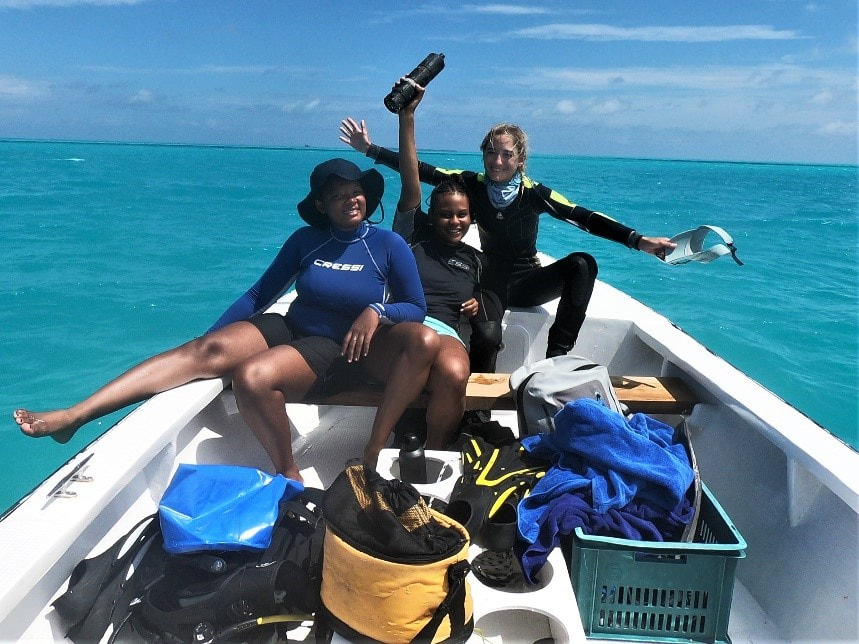|
In 2019 SFA employees Clara Belmont and Stephanie Marie visited Alphonse for one week to be trained, by ICS staff and PHd student Caitlin McGarigal, on the SeyCCAT acoustic telemetry project. The trainees were briefed on how this technology can be used to examine the movement patterns of target species, how to safely tag fish with transmitters and how to design an effective array of acoustic receivers across marine habitat.
They assisted with the practical task of downloading receivers which involves scuba diving to the seabed, often in poor visibility, locating and removing the receiver so that all the data that it stores can be downloaded at the surface before it is returned and secured again to its mooring block. Thanks Clara and Stephanie for your help!
0 Comments
With around 50 percent of the Seychelles’ landmass created by natural reserves, the islands are the perfect loation for promoting eco-tourism. While tourists visiting the area come for the turquoise waters, white sands and natural beauty, there is evidence to suggest that the number of visitors who wish to experience its unique biodiversity is continually on the rise. Conserving the islands' environment is one of the key principles of responsible travel, whether it’s to find a solution to the plastic bottle problem or ensuring the natural habitat is protected. The question is, how to bridge the gap between growing visitors numbers and promoting responsible travel?
Activities and tours The trends for embracing sustainable tours and activities has seen a huge increase in the Seychelles, as the modern traveler wants to combine their support for conservation with tourist amenities on their visit to the island. All aspects of the island’s industries, from tour companies to cruise lines, fisheries and hotels should provide sustainable options so that tourists feel like they are being offered a valued experience that contributes to authentic experiences that benefit ecotourism in the Seychelles. For example, wildlife cruises to explore the marine and bird life can benefit both the tourist and support local projects simultaneously. Parents can prioritize staying safe aboard the boat, particularly with small children, so that everyone has a rewarding experience. Local and economic community In addition to protecting the wildlife while traveling or getting involved with a Conservation Boot Camp, sustainable travel should also aim to minimize the impact travelers have on the local communities on their vacation in the Seychelles. Trying local delicacies and supporting restaurants, bars and shops is just one aspect of promoting responsible travel. Similarly, offering accommodation that is fitting with sustainability will ensure a more enriching experience that is respectful and considerate of the environmental impact. In doing this, the local economy is likely to flourish and will also benefit the island’s different cultures enormously. Teach and learn The shift from traditional modes of tourism has been replaced with the trend of people choosing sustainable options for their vacation and the environmental impact it has on a locality. Furthermore, the ongoing work of conservationists in the Seychelles helps to promote it as an eco-friendly tourist location. Education is vital to ensure the provision of context from what has been seen and experienced from partaking in snorkeling activities at Cap Ternay Marine National Park, boats tours from Mahe to Arideor or in a learning environments. Visitors are more likely to return to a ecotourism destination if they have a better understanding of it is and organizations have created positive ways of bringing responsible travel and tourist numbers together with projects such as the Sovereign Blue Bond. There are ample opportunities for the green tourist to experience the biodiversity throughout the archipelago islands that will leave a minimal footprint behind, and it is fortunate that the Seychelles communities and organizations are working together to achieve this. |
Categories
All
Archives
June 2024
|



